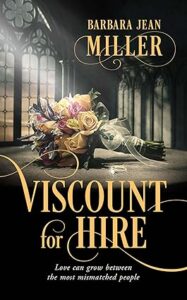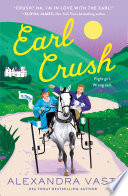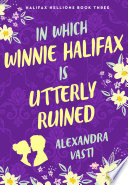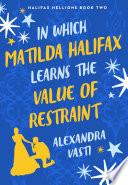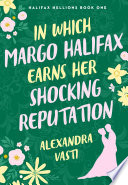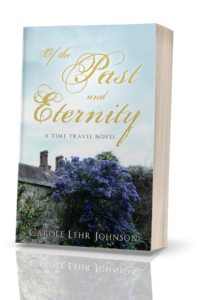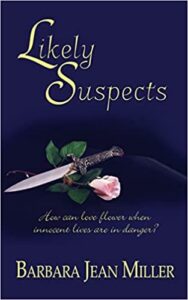 Elizabeth Bailey has an amazing collection of stand alone Georgian and Regency titles. Because I am always interested in the research and writing habits of others, I got the opportunity to discuss with Liz how she got interested in the eras and how she goes about crafting her novels.
Elizabeth Bailey has an amazing collection of stand alone Georgian and Regency titles. Because I am always interested in the research and writing habits of others, I got the opportunity to discuss with Liz how she got interested in the eras and how she goes about crafting her novels.
AG: What got you interested in the Georgian/Regency era?
EB: I first read Georgette Heyer when I was 11 and was entranced. Over the following years, my best Christmas present was the new Heyer and I would disappear for hours to read it. I reread some of the books endless times and became completely immersed in her version of the Georgian/Regency era. When I came to start writing novels, quite late in my career because I took up acting first, it was natural for me to turn to the period I knew and loved best.
AG: What do you find most enjoyable about writing historical fiction? Challenging?
EB: Immersing myself in the period is for me the best part of writing historical fiction. When I’m involved in a story, I am completely lost in the world I’m creating. It’s as if I’ve shifted in time and am living in the era. I love that feeling. What is tough is maintaining the mindset of the period, and trying not to bring 21st century values into the minds of my principal characters. To some degree, this cannot be avoided, as one is writing for a present-day readership. But for me it’s important to portray as realistically as possible the role of women in that society, and to make an issue of a heroine being independent or rebellious. I think it’s right to show men having authority as they did, but somehow allowing them to behave with compassion and consideration towards their women. This balancing act is the most difficult to achieve with success
Believability is important, but it doesn’t just mean getting the mores and traditions right. Too closely followed and you risk alienating a modern reader who is an independent thinker in her own right. Too loosely adhered to and your reader is taken out of the period, and might just as well be reading a modern romance with the characters in fancy dress.
AG: What are your favorite Georgian/Regency romances?
EB: I love The Reluctant Widow (Heyer) because Eleanor is the only truly witty heroine in the whole canon. I loved Maddalena (Sheila Walsh) because it was heart-stoppingly romantic, A Speaking Likeness (Sheila Bishop) which turns a difficult familial situation into a wonderful romance, Honeypot (Mira Stables) which successfully handles a ridiculous plot. These are some of my favourites. I like stories which are different or which turn conventional ideas on their heads, but I don’t like blatant period blunders or silly plots that are completely unbelievable for the era.
AG: What is your process for researching the Georgian/Regency era?
EB: When I began writing Georgians and Regencies, I read contemporary material voraciously – novels, diaries, journals, treatises, essays – anything that could give me a handle on the time from the people who lived through it. I also read accounts of the period by modern historians, and I pounced on every possible book that could help with clothes, furniture, places, buildings, travel, especially well illustrated. After writing upwards of 30 books in the period (not all of them published), I only need to research specifics for that story.
Background detail in astrology for a heroine who was a fanatic, for example, in Misfit Maid. Or classical mythology for Friday Dreaming for my scholarly heroine. Otherwise, it’s clothes, instruments, places or whatever I chiefly need for basic facts that crop up in the story. I love research, and can so easily get buried in that instead of writing the book that I have to be careful not to get too involved in whatever I’m reading up.
AG: What are your top tips for aspiring Georgian/Regency writers?
EB: If you want to write in the period, include contemporary material in your research. Nobody tells it better than the person who lived it. Research like mad, and then forget your research and write the story. Fix any research issues that come up later. Choose names for your characters that fit with the time – the Oxford Dictionary of English Christian Names is excellent for this as it tells you when names were popular and which social strata used them. Try to avoid modern slang and colloquial speech from our time. Instead use phraseology that gives a flavour of the period without getting too much into ‘Tis and “lud” etc. Historical slang had fashions too and it helps to use what was current. But Georgian speech is different from Regency speech, so you need to do your homework. And please please don’t use “gotten” – it’s too modern American in use, although it originally came from England!
Finally, remember that an unmarried young female could not be alone with a man to whom she was not related without being compromised. She needs a duenna or at least a servant in tow. Any unconventional activity has either to be kept strictly secret or become a plot point leading to inevitable betrothal and marriage. And that will be your greatest challenge!
Check out some of Liz’s work including favorites:



